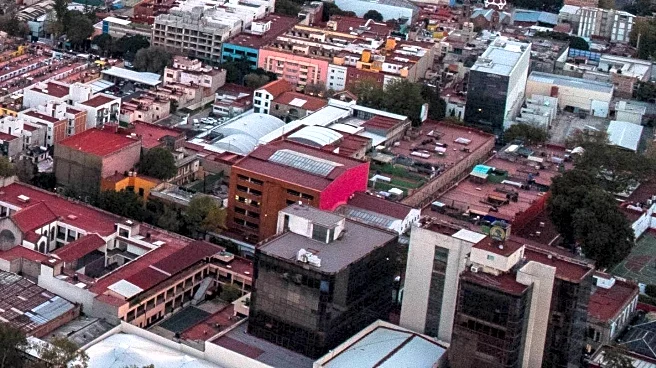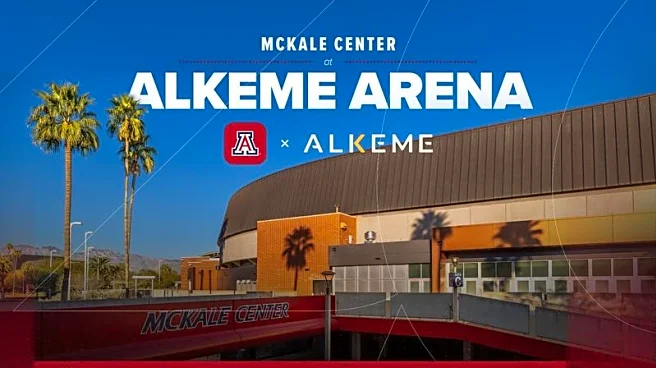What's Happening?
Mexico City is experiencing significant gentrification, particularly in neighborhoods like Roma and Condesa, which have become popular among digital nomads and tourists. This influx has led to increased housing costs, with rents rising by up to 45% in some areas since 2020. The local government, led by President Claudia Sheinbaum and Mayor Clara Brugada, has made attempts to control the situation, but these efforts have been described as feeble. The presence of short-term rental units, such as Airbnbs, has contributed to the housing market's volatility, causing concern among residents who fear displacement. Cultural shifts are also evident, with restaurants adapting to cater to foreign visitors, often requiring bilingual staff and offering menus in English.
Why It's Important?
The gentrification in Mexico City highlights broader issues of urban development and cultural change. As neighborhoods become more attractive to foreigners, local residents face economic pressures and potential displacement. This situation reflects a global trend where cities struggle to balance economic growth with preserving local culture and affordable housing. The real estate, hospitality, tourism, and restaurant industries benefit economically from the influx of digital nomads, but the social fabric of the city is at risk. The protests and activism against gentrification underscore the need for sustainable urban policies that protect residents while accommodating growth.
What's Next?
Local activists and residents are organizing to address the impacts of gentrification, pushing for policies that protect affordable housing and cultural heritage. The government may need to implement stricter regulations on short-term rentals and explore ways to ensure that economic benefits are distributed more equitably. As the situation evolves, there could be increased pressure on policymakers to find solutions that balance the interests of residents and the economic opportunities presented by tourism and foreign investment.
Beyond the Headlines
The gentrification issue in Mexico City raises ethical questions about the role of foreign investment in local economies and the responsibility of tourists to respect and preserve local cultures. The phenomenon also highlights the impact of globalization on urban environments, where cultural homogenization can occur at the expense of local traditions. Long-term, the city may need to consider innovative approaches to urban planning that prioritize inclusivity and cultural preservation.









